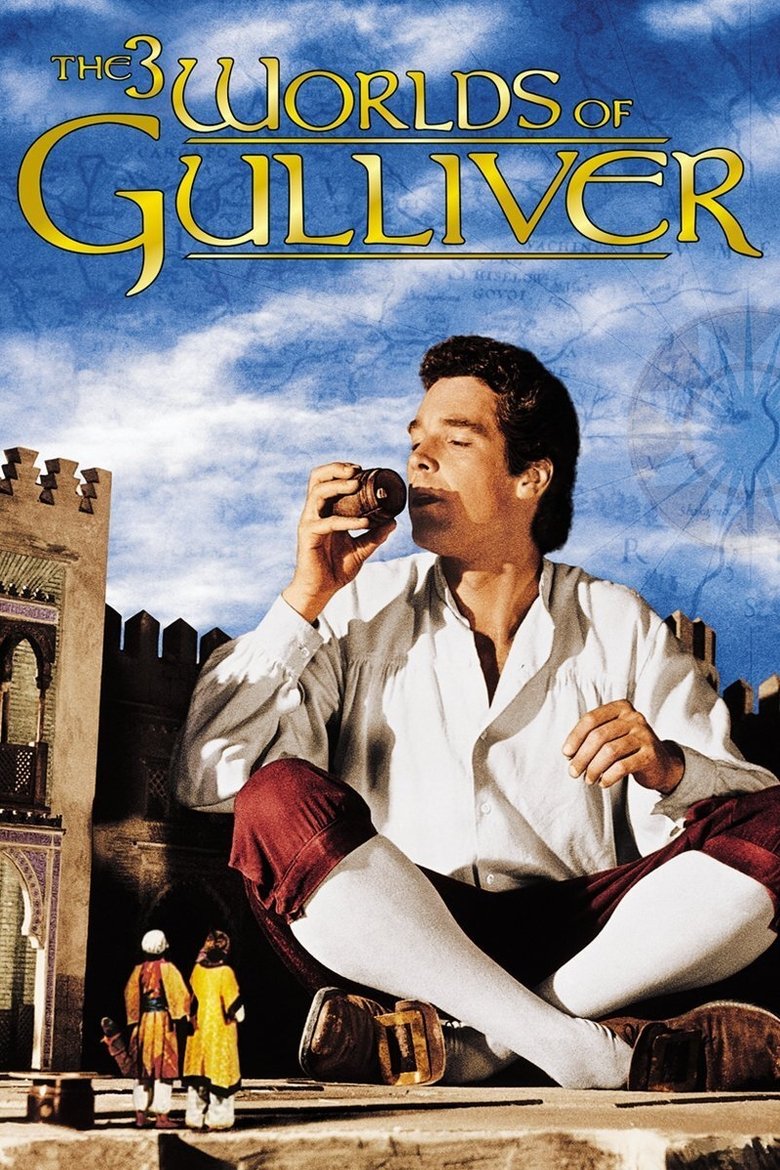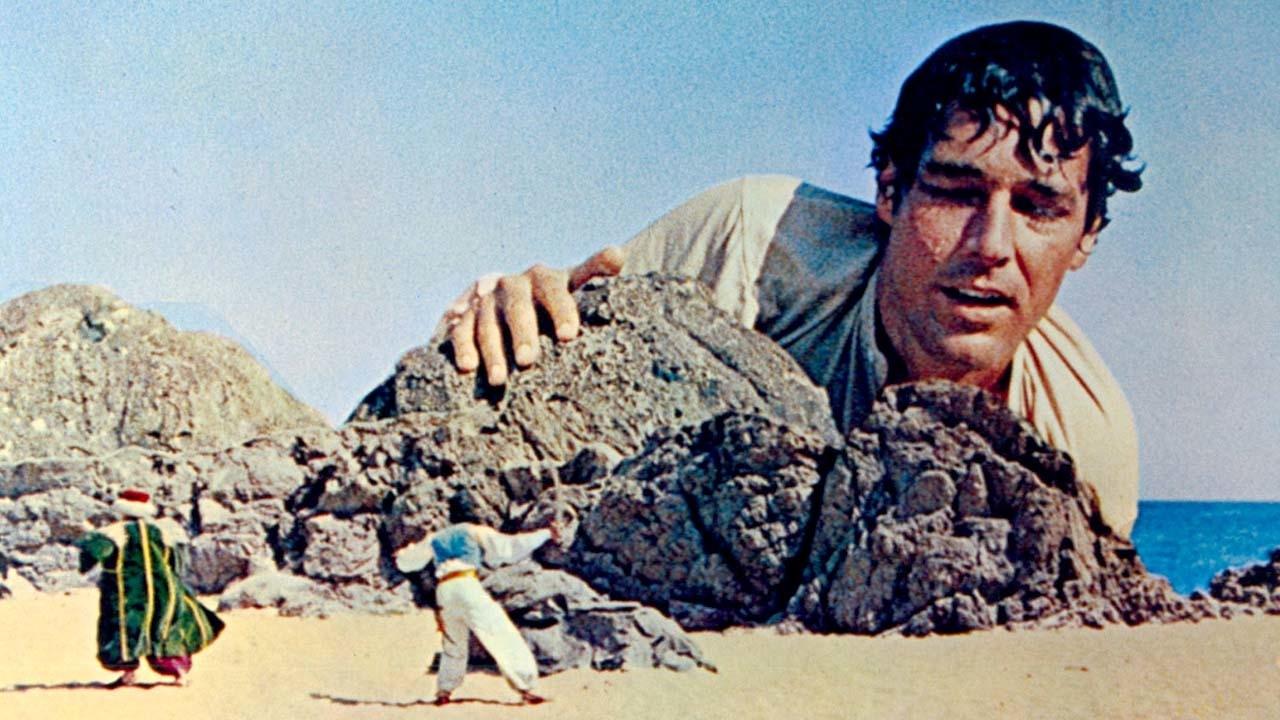
The 3 Worlds of Gulliver
Doctor Gulliver is poor, so nothing - not even his charming fiancée Elisabeth - keeps him in the town he lives. He signs on to a ship to India, but in a storm he's washed off the ship and ends up on an island, which is inhibitated by very tiny people. After he managed to convince them he's harmless and is accepted as one of their citizens, their king wants to use him in war against a people of giants. Compared to them, even Gulliver is a gnome.

John Chard@John Chard
What you don't understand you want to destroy!
The Three Worlds of Gulliver is produced out of Columbia Pictures and is directed by Jack Sher. It stars Kerwin Matthews as Lemuel Gulliver, June Thorburn as his fiancée Elizabeth, with support coming from Basil Sydney (The Emperor of Lilliput), Grégoire Aslan (King Brob), Mary Ellis (Queen), Charles Lloyd Pack (Prime Minister Makovan) & child actor Sherry Alberoni as Glumdalclitch. Filmed in England and Spain, it features stop-motion animation and special visual effects by Superdynamation genius Ray Harryhausen. Sher & Arthur Ross adapt for the screen with a loose reworking of the 18th-century English novel Gulliver's Travels written by Jonathan Swift. And music maestro Bernard Herrmann provides the score.
Swift's biting satirical novel has been watered down and given a romantic edge for the family market. That said, as the kids are enjoying the froth and tickle, the adults will note that there's just enough caustic comment in the piece to get the message across. This adaptation has slimmed down the four parts of Swift's work to just the two; Lilliput land of the little people and Brobdingnag land of the giants. With our intrepid normal sized hero Gulliver and his stowaway fiancée Elizabeth under threat either way.
While the script has its pleasing moments it is still only serving as a bridging work for Harryhausen's effects to be shown. Be it the giant and tiny people sequences or the perils that come to our undersized protagonists courtesy of a Gator and a Squirrel, it's these that the children will find beguiling. This, however, can not be said for Harryhausen aficionados or adults more accustomed to more modern advancements. For this is bottom rung for Harryhausen, not bad at all, yet although there's a charm here, and no one should ever dismiss the painstaking amount of time it took him to weave it together, the work is creaky and lacking the dynamism so befitting his best work.
Major bonus' come with the swirling and pounding score from Herrmann and the vibrant performance of Matthews. The role of Gulliver was first offered to Danny Kaye, which naturally makes sense given Kaye's previous work on Hans Christian Andersen some years earlier. That it was also offered to Jack Lemmon, though, makes no sense at all. Anyway, Matthews got the gig, and following on from his fine work in The 7th Voyage of Sinbad, he laid down a marker in the fantasy adventure genre that secured him fondness from legions of fans throughout the years. A safe, colourful and pleasant enough piece if ultimately not one for most fantasy adventure fans to revisit often. 6/10
